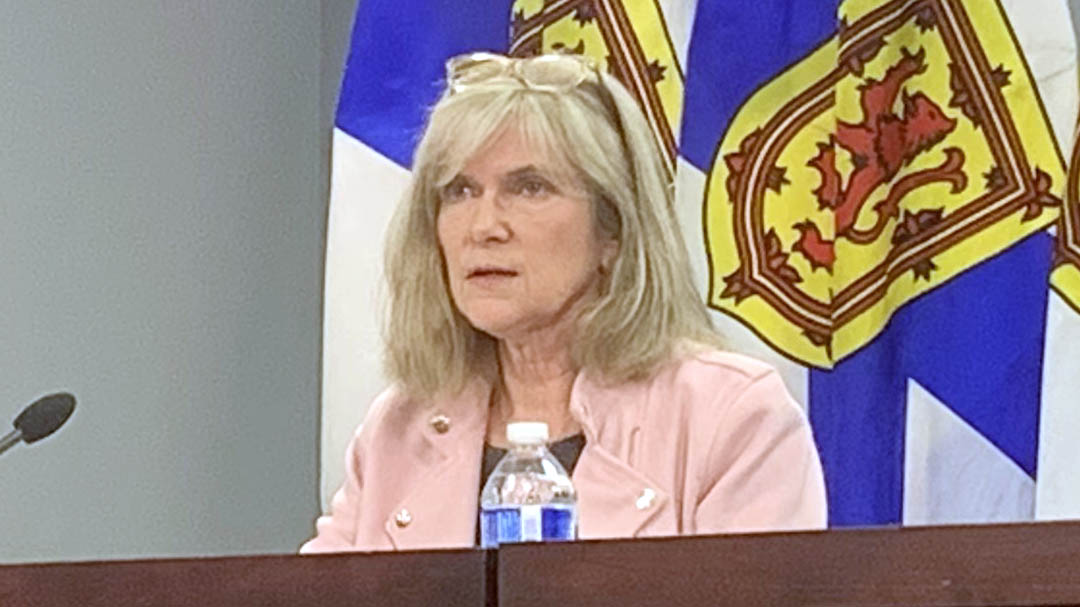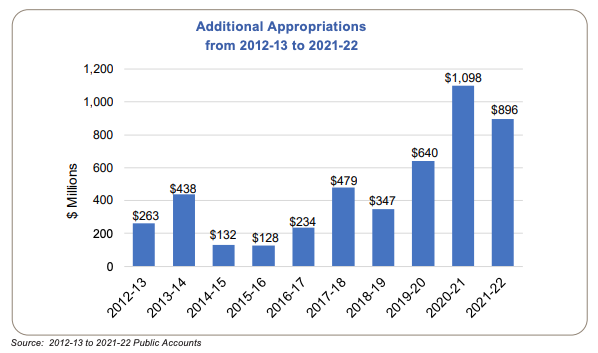Accountability required in over-budget spending, says auditor general Kim Adair
Tuesday’s report found $896 million in spending was not tabled or approved in legislature

caption
Nova Scotia auditor general Kim Adair criticized the province's tendency to spend without oversight on Tuesday.Auditor general Kim Adair said on Tuesday that the province should be more transparent when it spends money outside budgeted allocations.
In the 2021-22 fiscal year, the province allocated $896 million to various departments without those decisions being tabled or debated in the legislature.
Over the past 10 years, $4.7 billion in additional funds have been allocated, according to Adair’s report released on Tuesday.
“That’s $4.7 billion in public funds going out the door without debate or challenge through the legislature,” said Adair in a release.
“Nova Scotians deserve better transparency,” said Adair in the release. Her report recalls auditor general Jacques Lapointe’s 2008 financial report, which identified the same lacking transparency she is citing in 2022.
Lapointe’s report said “the current process to approve additional appropriations reduces accountability to and control by the House of Assembly. The debate and challenge that are integral to the budget process are absent from the approval for additional appropriations.”
According to Adair, Nova Scotia is the only province that does not require allocation of additional appropriated funds to be tabled and approved by the legislature.
The report calls for amendments to the Finance Act to address the “limited ability” the legislative assembly has “to hold the government accountable for overspending.”

caption
A figure showing the increase in yearly additional appropriation funding since 2012.Of the $896 million in additional appropriated funds allocated, $149 million was allocated to the Department of Advanced Education.
“In the absence of an overall vision or strategy for post-secondary spending from the province, I guess it’s hard for us to know if that spending is going to the right place,” said NDP MLA Lisa Lachance in an interview.
She said that February’s $9.8 million investment that provided Nova Scotia students with a one-time, $875 grant to help with bills was a positive example of additional appropriated funds. But she suggested alternatives, such as raising the provincial minimum wage, could have offered similar and more sustainable support.
Options like this could not be properly considered without the open dialogue of tabling spending through the legislature. “These one-offs are not always as helpful as they could be in actually making post-secondary education more accessible for all students,” said Lachance.
In an emailed statement, the Department of Finance said that cabinet’s ability to make spending decisions without turning to the legislature is important for the province to “respond to emergencies and areas that matter most to Nova Scotians, including healthcare, education, long-term care and communities.”
The department said the process is “transparent and accountable,” and that it has been in place through multiple provincial governments since 2010.
“We have agreed to make more information about additional appropriations available online going forward. We don’t believe a change is needed to the legislation.”
About the author

Ry Pembroke
Ry is a journalism student at the University of King's College. They have a Bachelor of Arts in Contemporary Studies and Religious Studies from...
